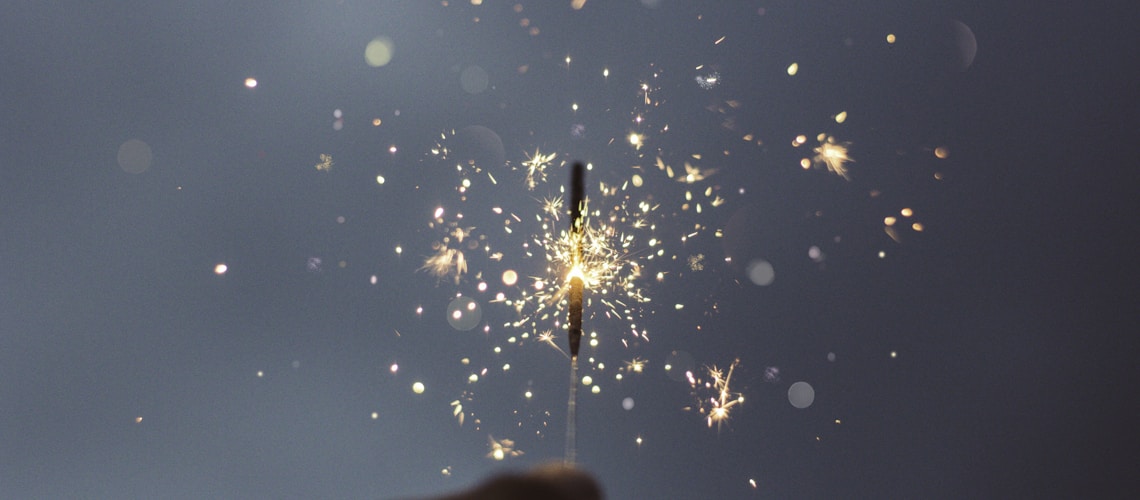Table of Contents
Well, it’s that time of year again, and we are all heading to a party, or waking up and committing to our new year’s resolutions. We may be going for a passeggiata around Rome and wanting to wish people “Buon Anno.” Or perhaps you are celebrating the Chinese New Year. So how do we say “happy new year” in Chinese, Italian, Spanish, German, French, and Italian (and even English) while avoiding the common, and often embarrassing mistakes?
- SUGGESTED: 5-MIN LANGUAGE QUIZZES!
1. The Correct Way to Say Happy New Year in English:
A Common mistake when saying Happy New Year’s in English is to leave off the apostrophe and say “Happy New Years” which is wrong, another simpler option that is also correct is to simply say “Happy New Year”. The apostrophe (possessive form) should be included become the expression is short for “Happy New Year’s Eve” or “New Year’s Day” which is the possessive form. It should be included in these situations:
Example 1: New Year’s Day
Example 2: New Year’s Eve
Example 3: New Year’s resolutions (resolutions made on New Year’s Eve/Day)
Example 4: New Year’s party (a New Year’s Eve/Day party)
Note that only Day and Eve are capitalized because they are the names of specific holidays. If you are talking about one or both of the two holidays then New Year’s is by itself. For example: “Let’s plan to get together for New Year’s.” Here, the ’s expresses the additional concept of day Eve or Day. If this confused you, try another simpler option, which is to simply say “Happy New Year!” without the apostrophe and s’s in English: Happy New Year! (Note: “New Year’s” is not necessary, as “new year” alone is sufficient. Some people might also say “Happy New Year’s!”, but this is not incorrect as it implies “Happy New Year’s Eve / Day” as mentioned above.
2. How to Say Happy New Year in Chinese (Simplified):
新年快乐 (Xīnnián kuàilè) (Common mistake when saying Happy New Year in Chinese: “新年好” (Xīnnián hǎo) is incorrect. This means “good new year,” but it is not a common way to wish someone a happy new year. The more common phrase is “新年快乐” (Xīnnián kuàilè), which means “happy new year.”)
3. How to Say Happy New Year in Spanish:
¡Feliz Año Nuevo! A Common mistake when saying Happy New Year in Spanish is: “¡Feliz Año Nuevos!” is incorrect. “Año” is singular, so the singular form should be used. Another common mistake is saying “Feliz Nuevo Año”)
4. How to Say Happy New Year in French:
Bonne Année! Common mistake: “Bonne Années!” is incorrect. “Année” is singular, so the singular form should be used.)
5. How to Say Happy New Year in German:
Frohes Neues Jahr! A Common mistake when saying Happy New Year in German is: “Frohes Neue Jahr!” is incorrect. “Jahr” is singular, so the singular form should be used.)
6. How to Say Happy New Year in Italian:
Buon Anno! A Common mistake when saying Happy New Year in Italian is: “Buon Anni!” is incorrect. “Anno” is singular, so the singular form should be used. Another mistake is omitting the second “N” and saying “Buon ano” which is (very) wrong and means “Good Anus.”
7. How to Say Happy New Year in Japanese:
明けましておめでとうございます (Akemashite Omedetō Gozaimasu) A Common mistake when saying Happy New Year in Japanese: “あけましておめでとう” (Akemashite Omedetou) is incorrect. The correct phrase includes the longer honorific phrase “ございます” (Gozaimasu) at the end.)
8. How to Say Happy New Year in Korean:
새해 복 많이 받으세요 (Saehae bok mani badeuseyo) (Common mistake when saying Happy New Year in Korean: “새해 축하합니다” (Saehae chukahamnida) is incorrect. This means “happy new year,” but it is a more formal and less commonly used phrase. The more common way to say “happy new year” in Korean is the phrase above, which is more casual and friendly.)
9. How to Say Happy New Year in Arabic:
كل عام وأنتم بخير (Kul ‘ām wa-antum bi-khayr) (Common mistake: “عام سعيد” (ām saīd) is incorrect. This means “happy year,” but it is not a common way to wish someone a happy new year. The more common phrase is “كل عام وأنتم بخير” “Kol ‘am wa anta/i bikhair” which means: “hope you and yours are well (times a thousand) for the rest of the year” It is used for New year and EID




